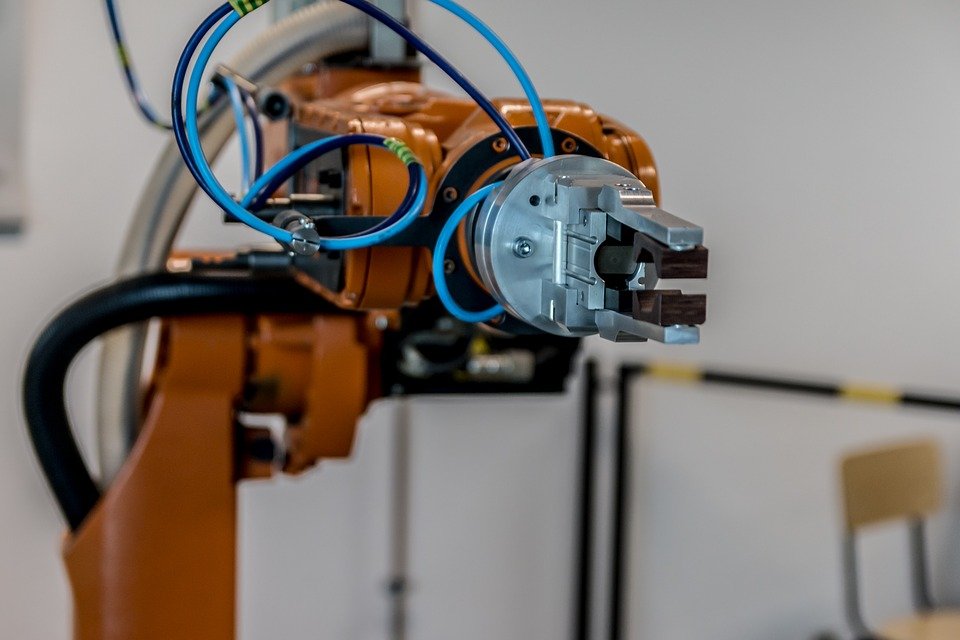Post-industrial towns and cities in Britain are facing a silent technological revolution. This revolution is changing every aspect of modern British daily life and is evident in areas such as work, shopping, banking, food consumption and even taxi services, which can now be requested by the push of a mobile application. The evolution of the machine and technological advancements are widely expected by economists to drive economic prosperity and create new employment in the future. This optimistic assumption underpinning this idea is that humans will always find new jobs and that machines will focus on more mechanical and laborious jobs.
However, this assumption does not hold, given the current economic realities driven by large technological companies; the pace of travel within the industry is driven by heavy investment in automation and robots to increase productivity. In response to the current pandemic, the wave of automation has accelerated, with businesses widely deploying Artificial Intelligence (AI) technology to handle administrative work or using chatbots to address citizens’ enquiries. Another example can be found in technological businesses such as Uber and Amazon, which are investing heavily in driverless vehicles as well as drones for the purposes of delivery services.
Another example from financial services where high-frequency trading (HFT) has been in operation for more than a decade is high-speed networks and sterling computer power equipped with algorithms used to determine strategic decisions in key trading areas such as stocks and commodities. Additionally, the COVID-19 pandemic pushed some financial institutions to consider using virtual reality technologies to emulate busy trading floors by using technologies by Microsoft HoloLens.
Such profound changes can potentially drive what Keynes called technological unemployment. How will this affect low-paying jobs in a region that is already facing tumultuous economic and social changes? The article A World Without Work poses a fundamental question for practitioners, policymakers and academics: ‘Are we embarking upon a world without enough work?’ There is no definite answer for this question, and as a result, it galvanised substantial academic debate and essentially challenged unshakable convictions that current technological advancements will change the world of work for the better.
For example, some scholars disagree on this analogy that was posed in a similar thesis, highlighting that it is essential to view digital technologies through the prism of the political economy, where a large swath of the economy is heavily financialised. Doing so will potentially shed an important light on how these digital technologies increase power as well as ownership of and accumulation of capital. Such critical understanding also uncovers the essential relationship between these immersive technologies and workers’ conditions (e.g., rising tide of insecure jobs and in-work poverty).
The current predicaments pose another fundamental question: how will this impact ‘left behind’ de-industrialised cities and towns in England? An answer is tentatively posed in a report by Centre for Cities. They clearly highlight that cities such as Wakefield and Sunderland, due to the ongoing automation in the logistics industry, are facing significant challenges like increasing the levels of precarious work and putting further pressures on workers’ salaries. They are so greatly impacted because the industry employs huge proportions of low-skilled workers in these local districts.
The optimistic views from a broad array of the political spectrum are stumbling upon the economic realities of the COVID-19 pandemic, where frontline workers were hailed as the backbone of the British economy. However, if we look beyond the shining allure of political melodrama, we can clearly see the working conditions and current levels of pay, and we will vividly see low pay (mostly on zero-hour contracts) and long hours of work. Thus, the current health crisis gives an important foundation for restoring what American philosopher Michael Sandel discusses in his book Tyranny of Merit: ‘the dignity of work’.
Restoring a sense of belonging and the value of work is important to highlight because, in a meritocratic society, we are valued for our credentials and how much we earn. Therefore, those who do not have a degree or who earn low pay face low self-esteem and low social recognition. A recent analysis underscored a great deal of despair within U.S. blue-collar workers, noting a sharp rise in suicide rates, drug addiction, gambling and alcoholism. Therefore, putting such issues at the heart of the political discourse for frontline workers is essential.
A first step is to increase the minimum wage (arguably the living wage) and ensure that all private sectors are legally committed to paying it. Second, and more important, is restoring the dignity of work by putting such debates at the heart of the political agenda, underscoring the role of frontline workers (such as custodians) for providing an ample contribution to the common good within society. Finally, the recent court cases in California chart a way forward, providing ample evidence of the necessity for legal protection (e.g., provision for holiday pay and sick pay) for gig economy workers, who are currently treated as independent contractors rather than employees.
Sherif Youssef is a Doctoral Researcher at the Centre of Enterprise and Entrepreneurship Studies at Leeds University Business School and The Bauman Institute at the School of Sociology and Social Policy. Twitter: @ShfYoussef
